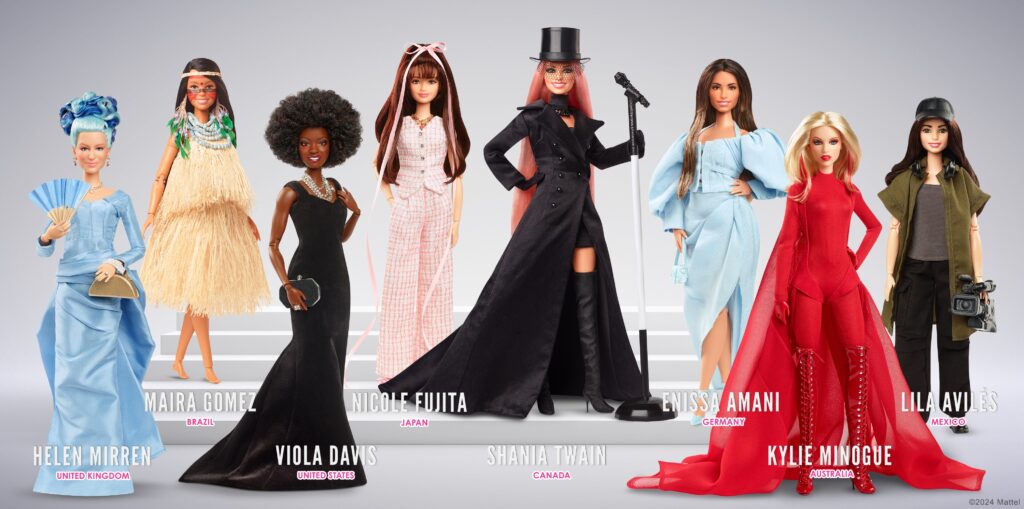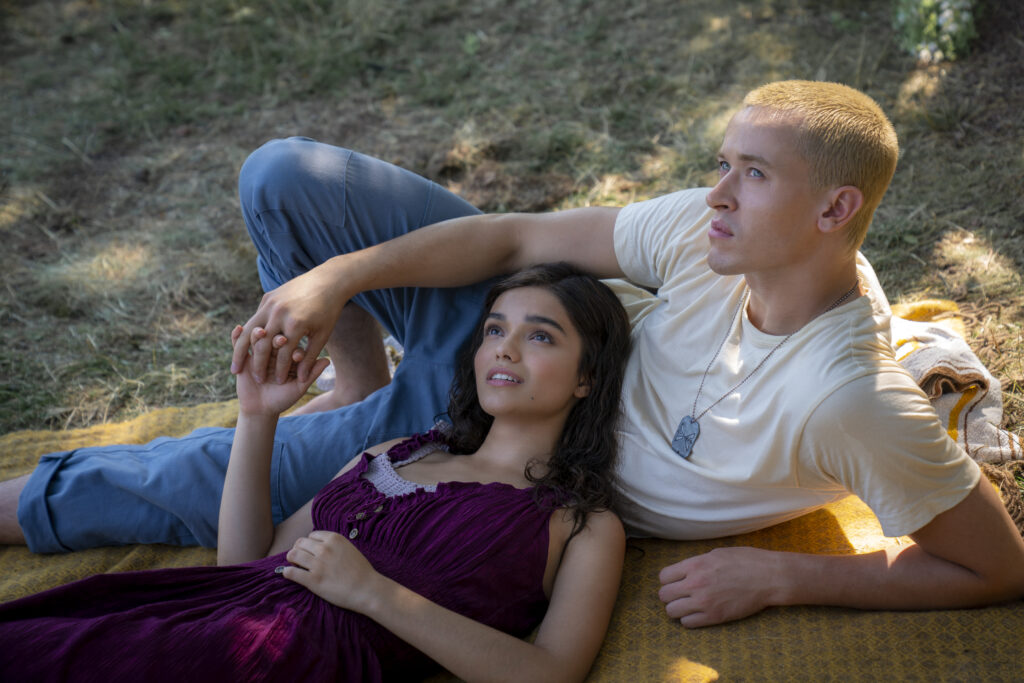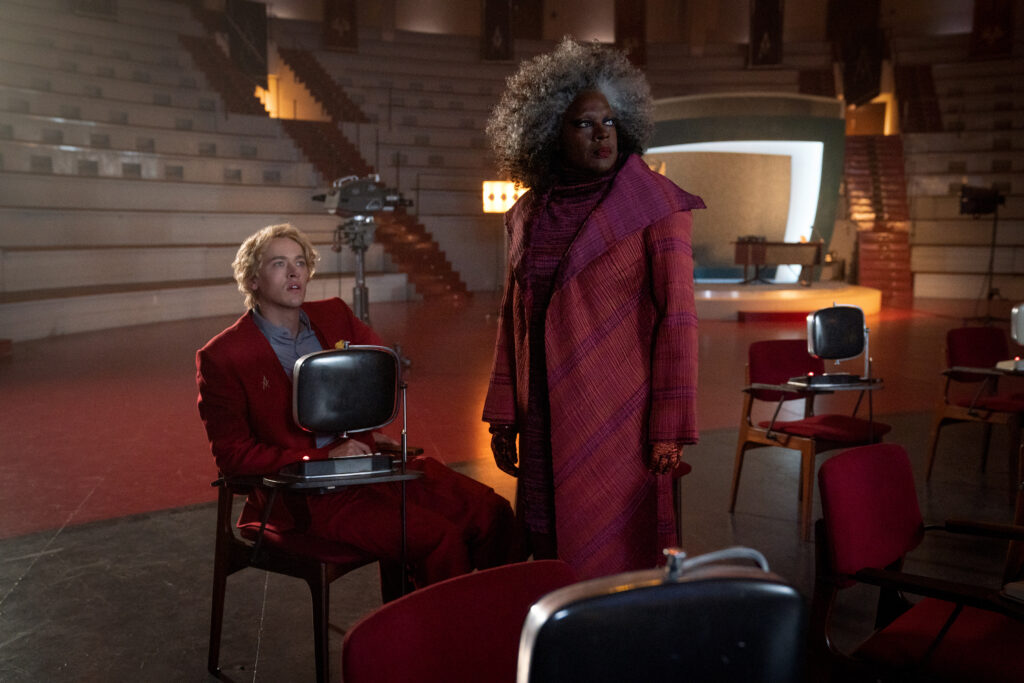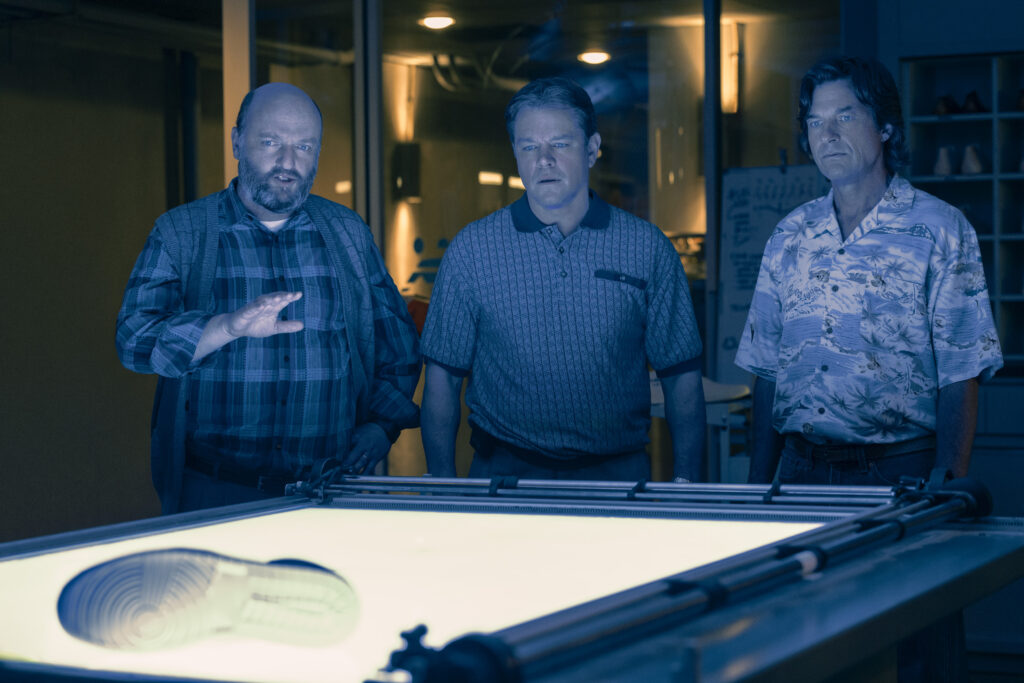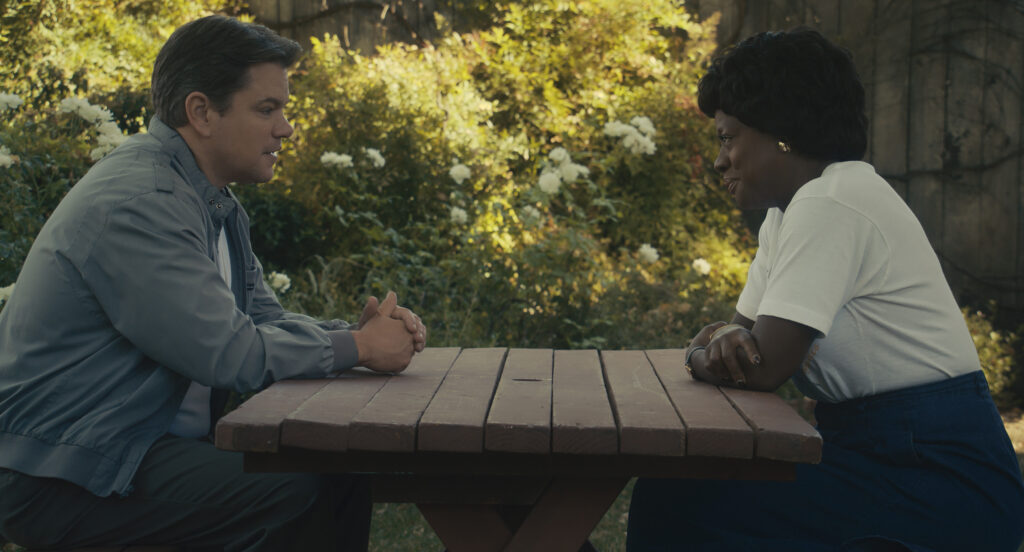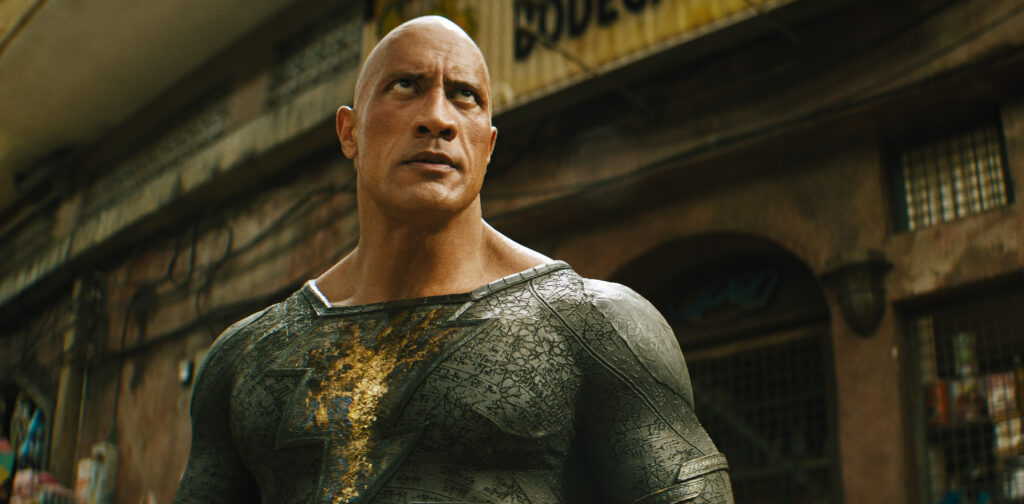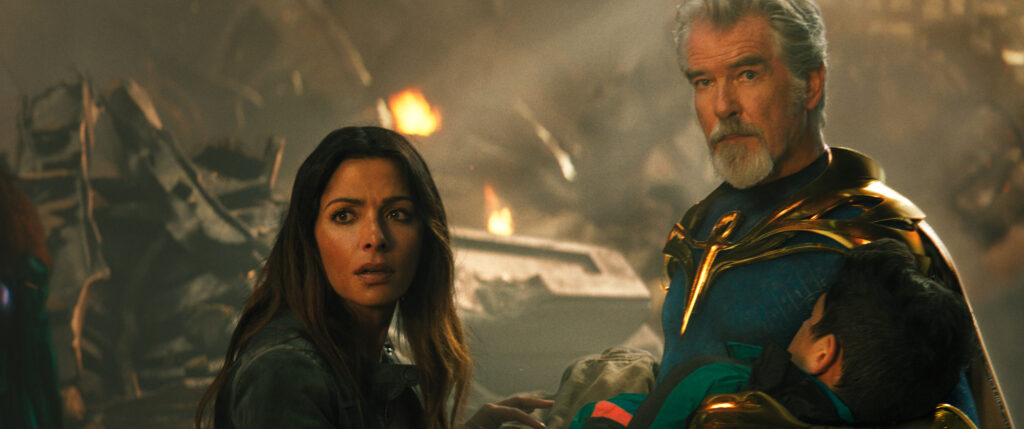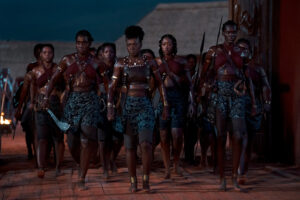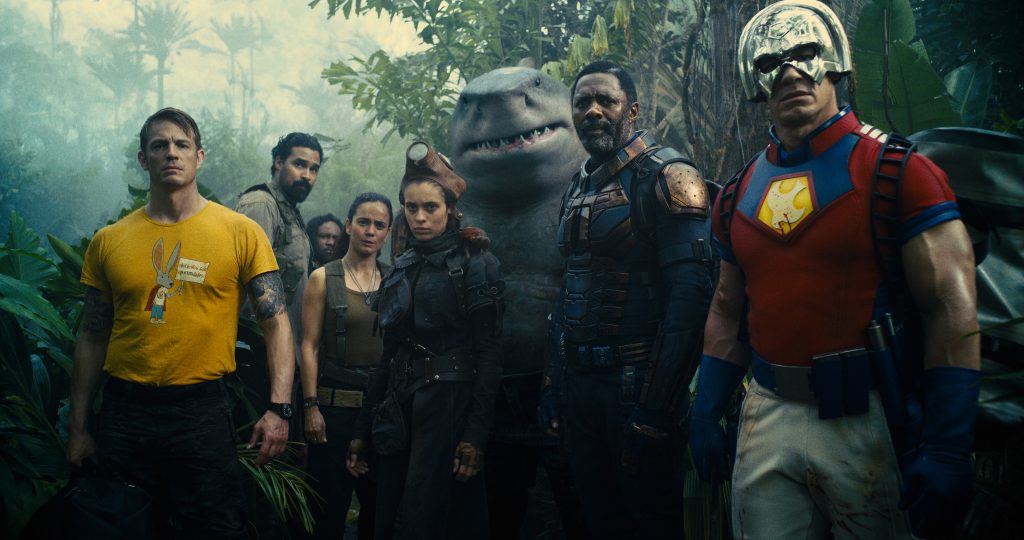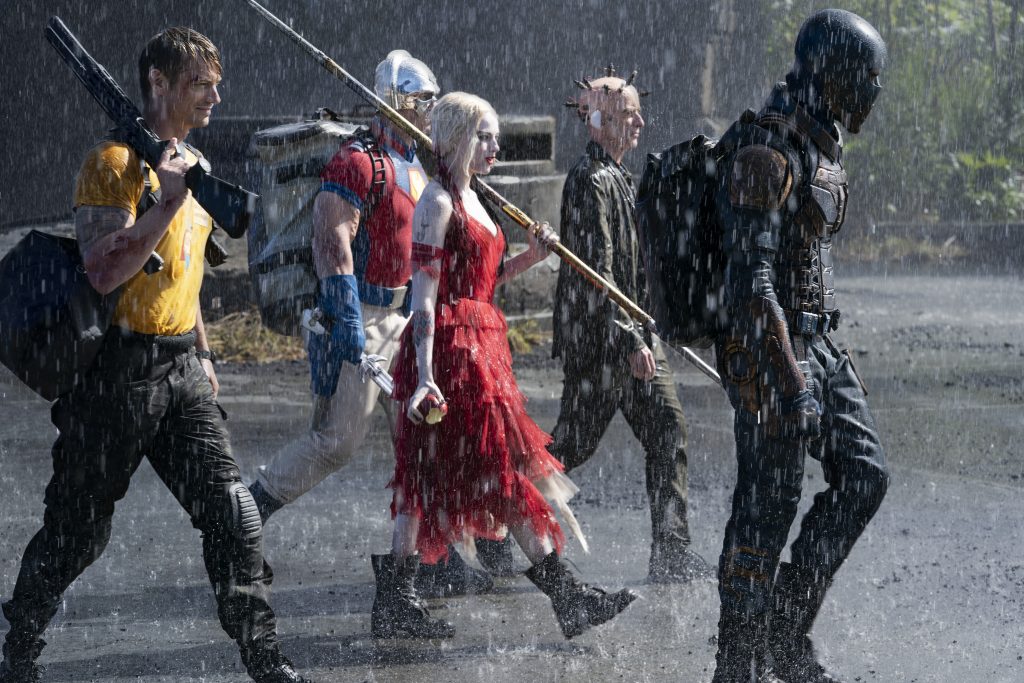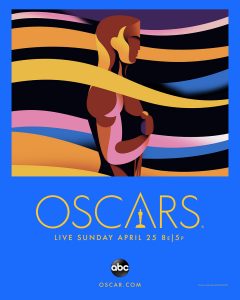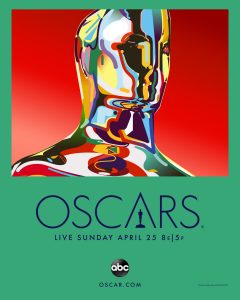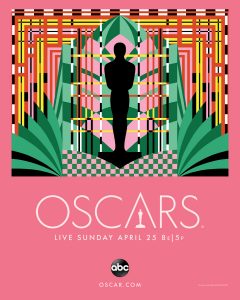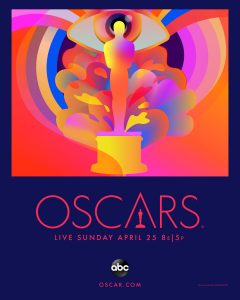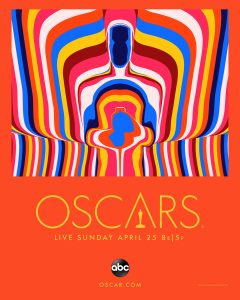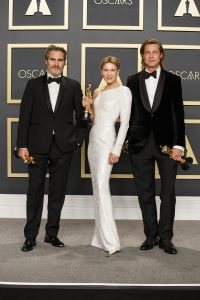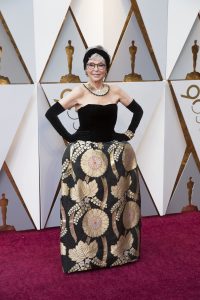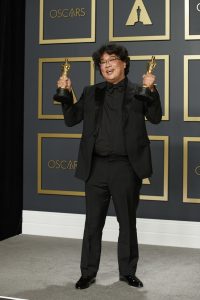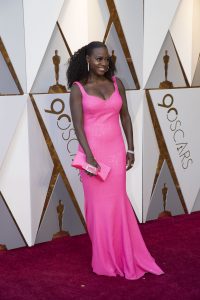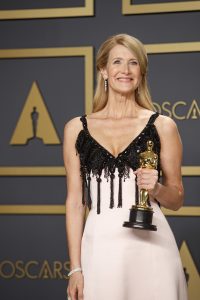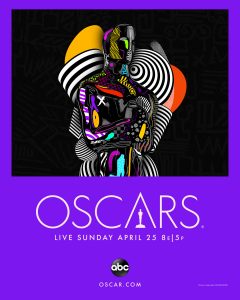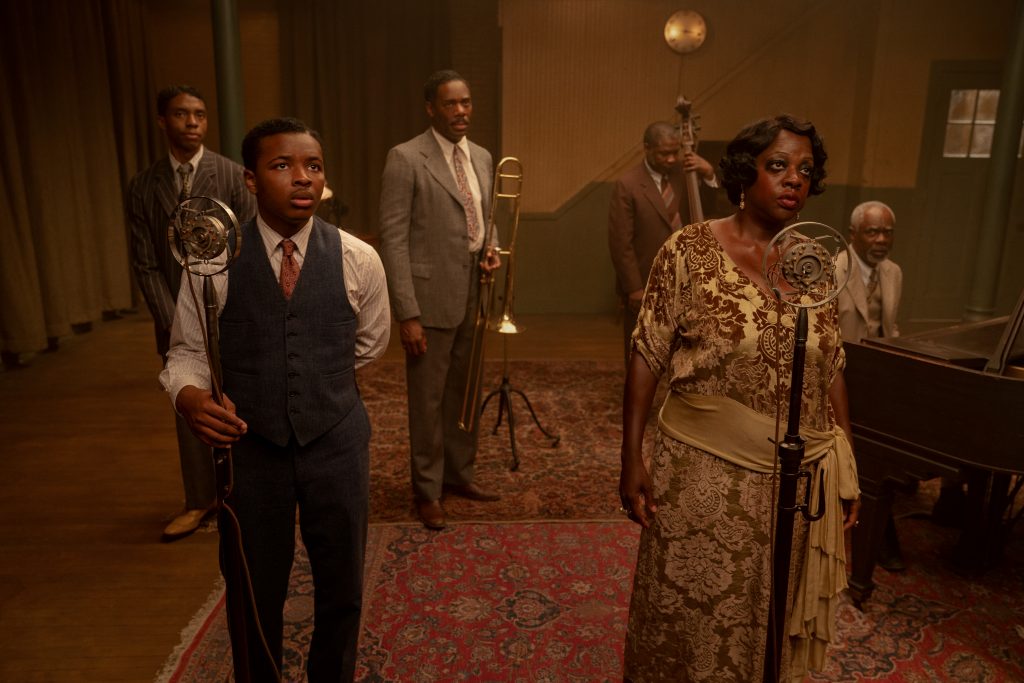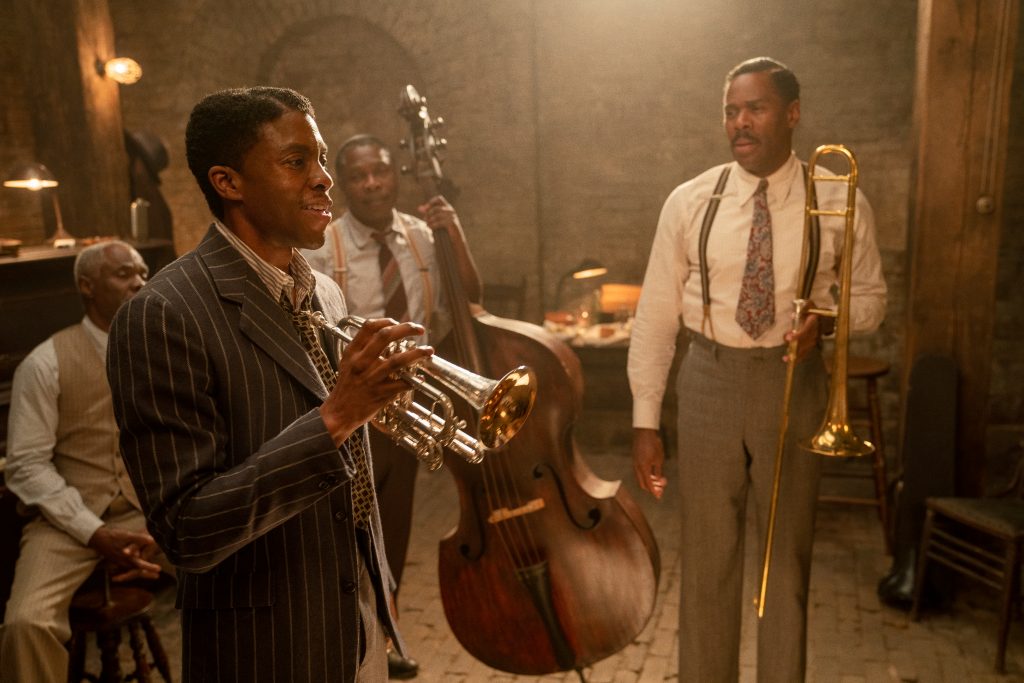March 7, 2024
by Carla Hay

Directed by Mike Mitchell; co-directed by Stephanie Ma Stine
Culture Representation: Taking place in a mythical version of China, the animated film “Kung Fu Panda 4” features a cast of characters portraying various talking animals.
Culture Clash: Grandmaster Warrior/kung fu fighter Po (a panda) and a rebellious fox named Zhen go on a quest to defeat an evil, shape-shifting villain named The Chameleon.
Culture Audience: “Kung Fu Panda 4” will appeal primarily to people who are fans of the “Kung Fu Panda” franchise, the movie’s headliners, and predictable but entertaining animation films that blend comedy and adventure.
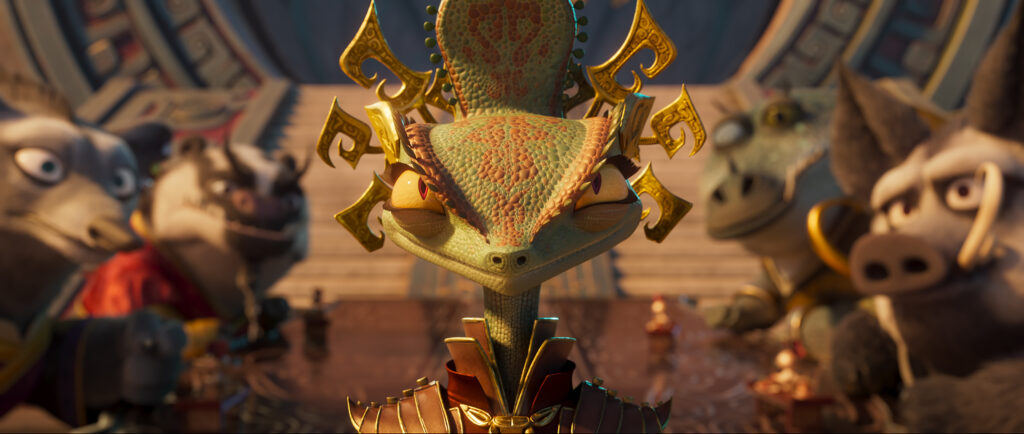
“Kung Fu Panda 4” sticks to a certain formula that’s made entertaining, thanks to a talented voice cast, light comedy and dazzling visuals. The absence of the Furious Five in this story will disappoint some viewers, but the adventure doesn’t get boring. “Kung Fu Panda 4” is the type of sequel that exists to set up a continuation of this franchise with perspectives that were different from previous “Kung Fu Panda” movies.
Directed by Mike Mitchell and co-directed by Stephanie Ma Stine, “Kung Fu Panda 4” is part of the franchise series that began with 2008’s “Kung Fu Panda” and continued with 2011’s “Kung Fu Panda 2” and 2016’s “Kung Fu Panda 3.” In the first three “Kung Fu Panda” movies, the title character Po (voiced by Jack Black) had adventures with a group of kung fu masters called the Furious Five: Tigress (voiced by Angela Jolie), Monkey (voiced by Jackie Chan), Viper (voiced by Lucy Liu), Crane (voiced by David Cross) and Mantis (voiced by Seth Rogen). Po evolves from being an awkward panda to being a full-fledged kung fu warrior, under the guidance of an elderly mentor named Shifu (voiced by Dustin Hoffman), who also trained the Furious Five.
It’s mentioned at the beginning of “Kung Fu Panda 4” (which takes place ina fantasy version of China, just like the previous “Kung Fu Panda” movies) that the Furious Five are off doing separate heroic deeds. (In other words, the “Kung Fu Panda 4” filmmakers couldn’t or didn’t want to pay the money it would take to bring the original Furious Five voice actors back as principal characters for this sequel.) Po is now a famous Dragon Warrior who loves to fight and almost always wins his battles against criminals where he lives in the Valley of Peace.
And that’s why Po is surprised when Shifu tells Po that Po is being “promoted” to become the Spiritual Leader of the Valley of Peace, as a replacement for the retiring Master Oogway, an elderly Galápagos tortoise. Po doesn’t think of himself as having enough knowledge about spirtuality to be qualified for this position. He only wants to do what he knows he’s good at doing: “Kicking butt and taking names,” Po says. Shifu gives reluctant Po the task of choosing Po’s successor as the next Dragon Warrior, but Po doesn’t think he’s qualified to do that task either.
Because he is the reigning Dragon Warrior, Po has been given possession of a magical staff that can open different realms. The staff only works if it is in the possession of someone who has been given the staff, not someone who steals or buys the staff. It should come as no surprise that this staff becomes the sought-after object in this story of good versus evil.
Po soon meets a female Corsac fox named Zhen (voiced by Awkwafina), a wily and sarcastic thief from Juniper City, a place that is bustling with high energy but also danger. It’s the type of place where innocent-looking kids can turn into mean little terrors within a split second. Zhen soon gets caught during a robbery and is tossed in jail.
Zhen tells Po that there’s an evil shapeshifting sorceress named The Chameleon (voiced by Viola Davis), who has super-strength powers and an army of Komodo dragons. The Chameleon who wants the staff, in order to have world domination. The Chameleon is already wreaking havoc by having several crime lords under her control in the surrounding areas. She forces these nefarious bosses to give her at least half of their bounty. The crime lords hang out at a place called the Den of Thieves, where they are led by Han (voiced by Ke Huy Quan), a pangolin who can change himself into a ball the size of a boulder.
Po naturally wants to stop The Chameleon. Zhen tells Po that she knows how to find The Chameleon. Po makes a deal with Zhen: He will get Zhen out of jail and get her jail sentence reduced if she can bring him to the place where The Chameleon is. Po figures that if he will soon have to gve up the title of Dragon Warrior, he wants to go out in a blaze of glory. The majority of “Kung Fu Panda 4” is about Zhen and Po’s quest to find The Chameleon and encountering several obstacles and challenges along the way.
It’s a secretive trip that Po doesn’t disclose to his family. Po’s adoptive father Mr. Ping (voiced by James Hong) and Po’s biological father Li (voiced by Bryan Cranston)—whose rivalry was resolved after they met in “Kung Fu Panda 3″—join forces in “Kung Fu Panda 4” to find Po when he goes missing. Mr. Ping is a nervous goose, while Li has a lot of masculine bravado, so these two opposite personalities (who occasionally argue) are fodder of a lot the comedic rapport between these two fathers.
During the time and Zhen and Po spend time together and get to know each other better, they find out that they both spent most of their childhoods as orphans. Zhen says she was taken in and raised by someone who taught street smarts to Zhen. It’s at this point in the story where it might be very easy for some viewers to figure out what’s going to happen.
“Kung Fu Panda 4” voice cast members Black and Awkwafina have done several animated films where they are larger-than-life, comedic characters. It’s a skill set that not all performers have, but Black and Awkwafina excel at it, even if some viewers might think Awkwafina’s voice is irritating. As for the Chameleon character, Davis gives a very divalicious performance as a villain who is both glamorous and menacing.
“Kung Fu Panda 4” also marks the return of snow leopard Tai Lung (voiced by Ian McShane), who was the chief villain in the first “Kung Fu Panda” movie. Other supporting characters in “Kung Fu Panda 4” are Captain Fish (voiced by Ronny Chieng), a green arowana living in a pelican’s mouth; Granny Boar (voiced by Lori Tan Chinn), who uses her tusks and weapons; and PandaPig (voiced by MrBeast), a pig with certain panda characteristics, who is at the Dragon Warrior Tournament. One of the best-looking fight sequences in “Kung Fu Panda 4” involves Po and some of the other characters in shadows.
Sometimes, when there’s a long gap between movies in a franchise, the movie that closes that gap can be a very stale cash grab that seems outdated. However, the throughline between “Kung Fu Panda 3” and “Kung Fu Panda 4” manages to keep the story and characters fresh enough to deliver a crowd-pleasing film. “Kung Fu Panda” is not going to win any major awards, but it fulfills its purpose to be pleasant diversion that people of many generations can enjoy.
Universal Pictures will release “Kung Fu Panda 4” in U.S. cinemas on Mach 8, 2024.

